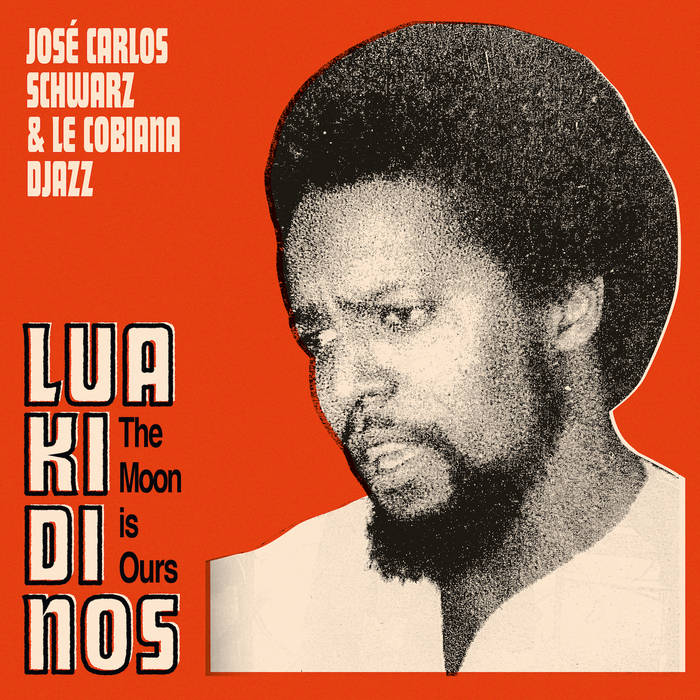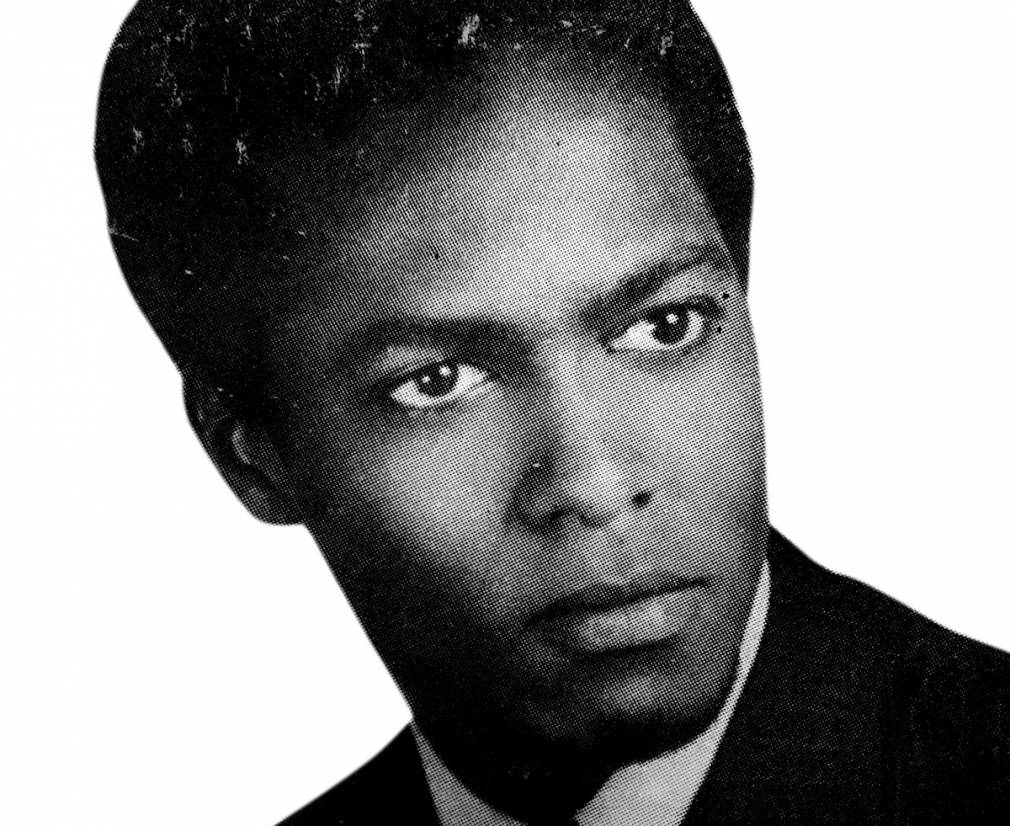Hot Mule Records is reissuing vinyl editions of some of the most famous records by José Carlos Schwartz, the great poet and musician from Guinea-Bissau. Lua ki di nos (“The moon is ours”) will be released on April 9.
He is one of the most famous Bissau-Guinean poets and musicians of the 20th century. Yet José Carlos Schwarz, whose works and actions have inspired generations of musicians, remains little known beyond the borders of his country. The Hot Mule label aims to change this with the reissue of his most famous works. PAM takes this opportunity to take a look at his remarkable career.
Youth of a resistance fighter
José Carlos Hans Schwarz, of German, Cape Verdean and Guinean origin, was born in Bissau in 1949. A well-to-do upbringing meant that he received an excellent education in Dakar and then in Cape Verde. Finally finding himself in Lisbon, he returned to his hometown to pursue art, despite his father’s desire that he follow a more ‘serious’ career path. The young artist became passionate about music alongside the Castro Fernandes brothers, his childhood friends, and soon created his own group Sweet Fenda, which was inspired by Brazilian and American artists. The Portuguese authorities, impressed by the poet’s charisma, attempted to recruit him for the colonial regime’s propaganda office. But the heart of the young Guinean remained loyal to notions of independence inspired by Filinto Barros, major figure of the African Party for the Independence of Guinea and Cape Verde (PAIGC), and friend to the famous Amílcar Cabral. From then on, art would be inseparable from politics forJosé Carlos Schwarz.
Alongside the struggle against the colonization of his native country, the young independence fighter devoted himself to music, which coincided with the completion of his military service in the early 1970s. His art became necessarily political: he was interested in Guinean musical traditions, such as the gumbé, rather than by foreign music influence of the Sweet Fenda era. Guinean Creole became his preferred language for writing and singing. He founded Cobiana Djazz at this time, alongside Aliu Bari and Mamadu Bá e Samakê, which quickly became the most influential group in Guinea-Bissau. The poet sang about the independence revolution, as in “Na Kolonia,” representing the cry of an artist in exile thinking about the fate of his friends back home.
An immediate success with the various Guinean cultural groups, Cobiana Djazz incited the youth to join the armed struggle that was, by that point, sweeping the country. The group also paid tribute to the women in the struggle, as well as to the mothers of Guinean soldiers who disappeared during the independence resistance, especially on “Mindjeris Di Panu Pretu,” a song that remains very important in Guinea-Bissau even today. José Carlos Schwarz was also directly involved in resistance activities against the colonial power, participating in urban guerrilla actions or sabotage operations. His song “Ke Ki Mininu Na Tchora” has also stood the test of time: it tells of the fratricidal split between the independentists and their colonized brothers who supported the colonial authorities.
Djiu di Galinha
His resistance efforts eventually led to imprisonment for José Carlos, while the poet Aliu Bari and his childhood friend, Ducko Castro Fernandes, were tortured by the International Police and Defense of the Portuguese State (PIDE: Polícia Internacional e de Defesa do Estado). The song “Djiu Di Galinha” (named after the island where political prisoners were deported) testifies to his two-year experience behind bars. Once released in 1974, it was in Portugal that he saw, in April of that year, the Carnation Revolution (Revolução dos Cravos) led by young officers who refused to fight in the colonies. Their movement – strongly supported by the population – led to the fall of the Salazarist dictatorship in Portugal, and at the same time precipitated the end of the colonial wars, sounding the death knell of the Portuguese hold on Cape Verde, Angola, Sao Tome and Mozambique. As for Guinea-Bissau, it managed to defeat the Portuguese thanks to the maquis (resistance group) led by Amilcar Cabral.
José Carlos Schwarz was very active during the early days of independent state building. The political leaders fed off the singer’s considerable popularity among the Guinean population. However, this did not prevent the artist, guided by a desire for social justice, from criticizing the government following independence. Appointed Director of the Department of Arts and Culture, he quickly embarrassed the authorities who promptly dismissed him to a diplomatic post in Cuba. This also meant the end of his work with Cobiana Djazz and a new creation in the form of “Kumpô,” which he played with when not consumed by political activities. Nevertheless, he continued to write poems, denouncing the new rulers, whom he considers traitors to the independence ideals.
José Carlos died suddenly in a plane crash near Havana on May 27, 1977, at the age of 27, like many artists of the famous “Club of 27”, (Amy Winehouse, Janis Joplin, Jimi Hendrix, Kurt Cobain), he left the world countless poems and three albums, José Carlos Schwarz And The Cobiana Jazz – Vol. 1. Guinea Bissau and José Carlos Schwarz And The Cobiana Jazz – Vol. 2. Guinea Bissau, but also of course Djiu Di Galinha. The latter was recorded with the pan-African singer Miriam Makeba in New York (it is also rumored that they were lovers). It was later released posthumously. On June 1, 1977, at his home in Guinea, a huge funeral procession accompanied the poet’s remains, paying tribute to the symbol he embodied, and to the immense void he left in the world of Guinean culture and politics.
Lua Ki Di Nos by José Carlos Hans Schwarz and Cobiana Djazz is out now digitally — the vinyl will be available on April 9 via Hot Mule.
Listen to José Carlos Schwarz & Le Cobiana Djazz in our Songs of the Week playlist on Spotify and Deezer.



